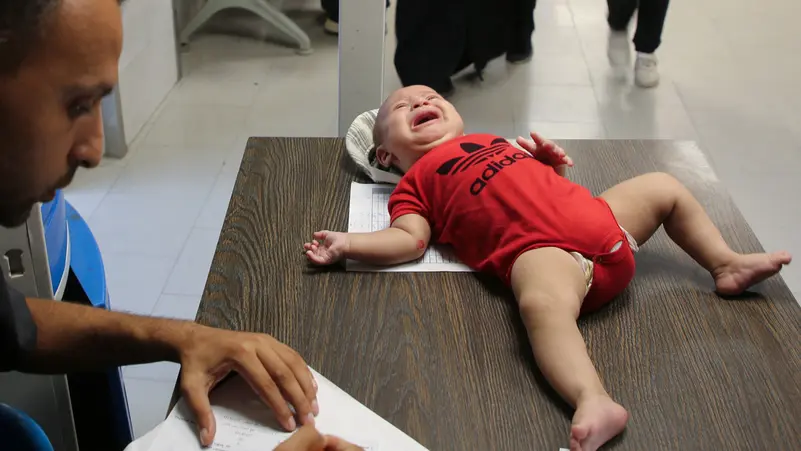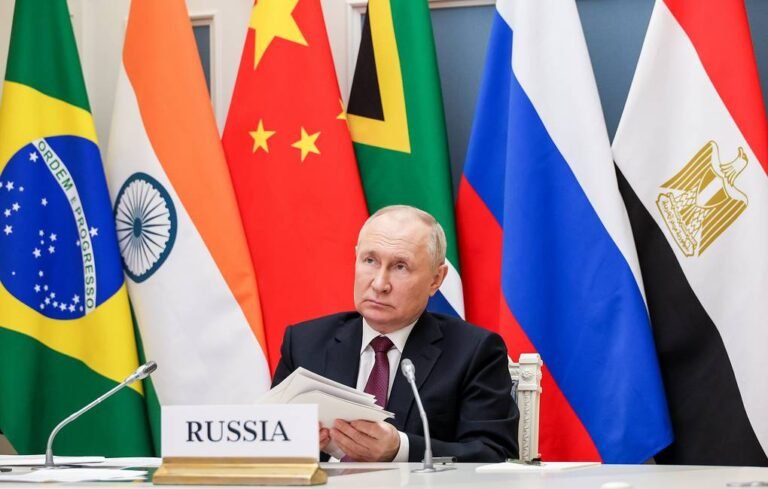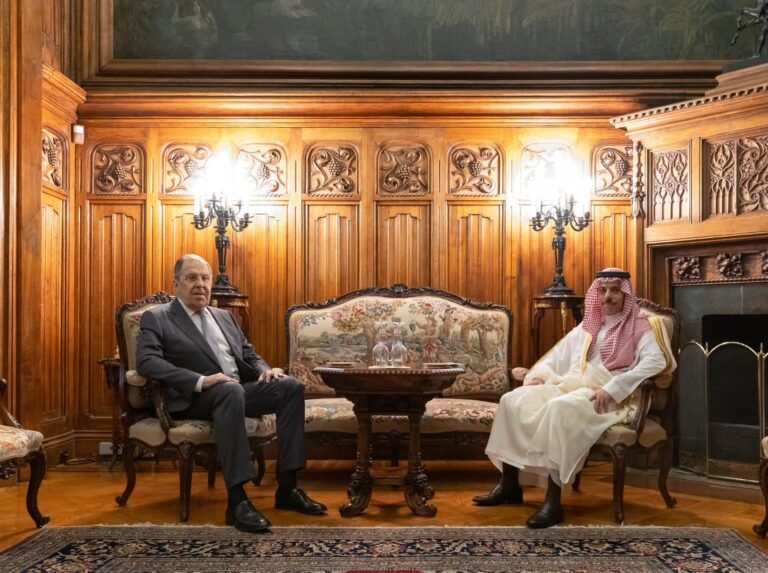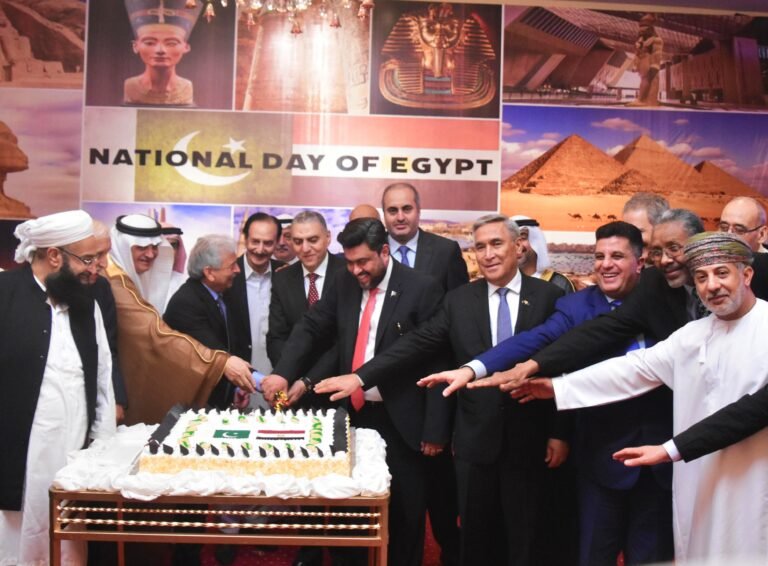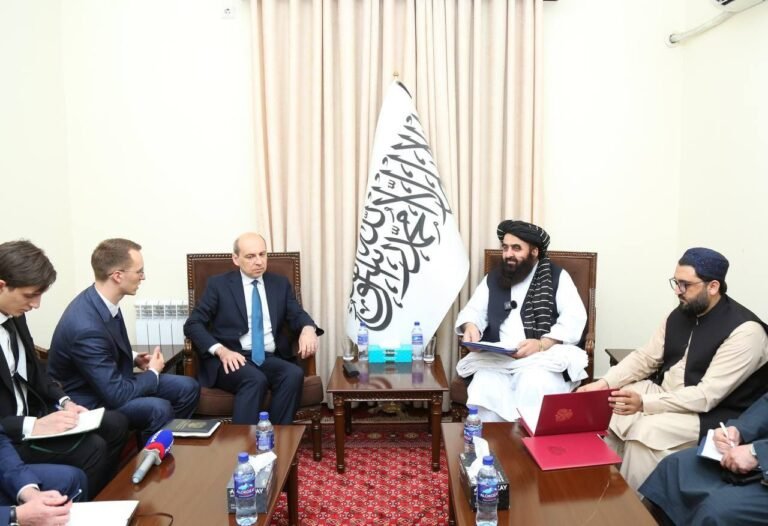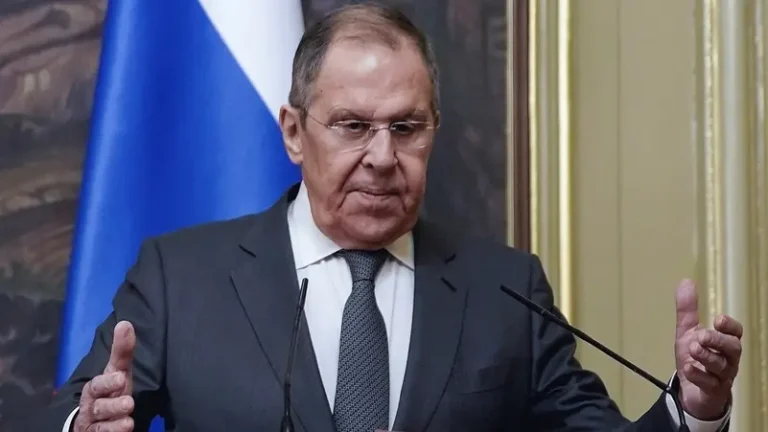While the focus now is on urgent vaccination campaign, health experts stress long-term strategies to prevent future spread
The reemergence of polio in Gaza after 25 years has sent alarm bells ringing among health experts, who have warned of a potentially catastrophic outbreak that could compound the already dire humanitarian situation of thousands of children trapped in the conflict-torn enclave.
Given this, the World Health Organization (WHO) is set to launch a massive vaccination campaign in Gaza on Sunday.
The latest case of polio – that has led to paralysis in a child named Abdul-Rahman Abu Al-Jidyan, aged about one year – has accelerated plans for a widespread immunization program, targeting more than 640,000 children across the Palestinian Territory.
A three-day pause in fighting in each of Gaza’s three zones has been agreed upon by Israel and Hamas to allow thousands of UN workers to administer polio vaccines.

Poliomyelitis, which is spread mainly through the fecal-oral route, is a highly infectious virus that can invade the nervous system and cause paralysis and death in young children with those under two years old most at risk. In nearly all cases it has no symptoms, making it hard to detect.
Consultant in infectious diseases at Burjeel Medical City, Abu Dhabi, Dr. Rachel Herbert, told Al Arabiya English that the reemergence of polio in Gaza is “alarming, posing a significant threat to children in the Gaza Strip and neighboring countries.”
Herbert emphasized the impact of the ongoing conflict on routine immunization efforts, stating: “The ongoing conflict has severely impacted routine immunization efforts, causing coverage to plummet from 99 percent [in 2022] to 89 percent [in 2023]. This drop in coverage has heightened the risk of vaccine-preventable diseases, including polio.”

Unprecedented campaign amidst conflict
WHO, in collaboration with other UN agencies and the Palestinian Ministry of Health, plans to administer two drops of novel oral polio vaccine type 2 (nOPV2) to children under ten. The campaign aims to reach at least 90 percent vaccination coverage to effectively halt the outbreak and prevent international spread.
Providing details on the scale of this operation, the WHO Representative for the Occupied Territories, Dr. Rik Peeperkorn, in a statement shared with Al Arabiya English, said 1.26 million doses of vaccines and 500 vaccine carriers were delivered to Gaza. “An additional 400,000 vaccine doses will arrive in Gaza soon. More than 2,180 health and community outreach workers have been trained to provide vaccination,” he added.
Humanitarian pauses: A critical window for vaccination
Both Israel and Hamas have agreed to implement area-specific humanitarian pauses to facilitate the vaccination campaign. This agreement marks a rare moment of cooperation in the ongoing conflict.
“We welcome the commitment to area-specific humanitarian pauses during the campaign,” Peeperkorn said. “We call on all parties to pause fighting to allow children and families to safely access health facilities and community outreach workers to get to children who cannot access health facilities for polio vaccination.”
The campaign will be conducted in a phased approach over three days in each area, starting with Central Gaza, followed by South Gaza, and then North Gaza.
However, Peeperkorn noted that these brief pauses in fighting might not be sufficient, given the challenging circumstances on the ground.

“Due to insecurity, damage to road and infrastructure, and constant population displacement, conducting the campaign for just three days in each area is unlikely to be sufficient to achieve adequate vaccination coverage,” he explained.
Catastrophic implications
Dr Herbert warned that an outbreak of polio in Gaza would be catastrophic, compounding an already dire humanitarian crisis marked by shortages of basic supplies, damage to water and sanitation infrastructure, and widespread malnutrition.
“Polio is highly contagious, and the virus can spread rapidly in areas with low immunity. A single case of polio suggests the virus is still circulating within the community, raising the specter of a potential outbreak,” she further said.

The long-term consequences of polio infection are severe and life-altering. Survivors may face permanent paralysis, long-term disability, skeletal deformities, chronic respiratory issues, and post-polio syndrome (PPS). The psychological impact, including social isolation and depression, can be equally devastating.
On the disease’s progression and potential outcomes, Herbert further explained: “Most poliovirus infections are asymptomatic, but between four to eight percent of those infected experience mild symptoms such as fever, headache, sore throat, and fatigue, which usually resolve within one to two days. However, one to two percent of cases can develop severe illnesses, including meningitis.”
She said approximately 0.5 percent to 0.05 percent (that is 1 in 200 to 1 in 2,000) of infected individuals develop paralytic polio, which can lead to paralysis, quadriplegia, and respiratory failure.
Gaza’s unique vulnerabilities
Gaza’s current situation makes it particularly susceptible to a widespread polio outbreak.
The Gaza region is particularly vulnerable to an outbreak due to several factors: High population density, a large population of children under five (the age group most at risk of severe disease), and a healthcare infrastructure that is both disrupted and overwhelmed by the ongoing conflict.
According to the WHO, only 17 out of 36 hospitals in the territory are partially functional, with less than half of the 132 primary health centers being operational.
Global concerns
The polio threat in Gaza is not isolated, but part of a broader health crisis that has emerged due to the ongoing conflict. Herbert warned of increased risks for other vaccine-preventable diseases and health issues.
“The situation in Gaza heightens the risk of other vaccine-preventable diseases, such as measles, as well as increase in cases of diarrhea, acute respiratory infections, hepatitis A, and skin diseases among children,” Dr Herbert said, adding the situation demands renewed focus and resources from global health organizations to support vaccination efforts, enhance surveillance, and strengthen public health campaigns.
Origins and spread of the virus
The polio strain detected in Gaza is a type 2 vaccine-derived poliovirus, similar to variants found in wastewater samples in some developed countries in recent years. Genetic sequencing suggests the strain resembles a variant found in Egypt, possibly introduced in September 2023.
The WHO attributes the virus’s reemergence to a drop in routine vaccinations in the Occupied Territories, including Gaza.
Aid workers point to poor sanitation conditions, exacerbated by nearly 11 months of conflict, as creating favorable conditions for the virus’s spread. Open sewers and accumulating trash piles have become commonplace, increasing the risk of transmission.
Global implications and the fight
The emergence of polio in Gaza represents a setback for global efforts to eradicate the disease. Since 1988, mass vaccination campaigns have reduced polio cases by more than 99 percent worldwide.
However, the virus remains endemic in Pakistan and Afghanistan, with more than 30 countries still listed by the WHO as susceptible to outbreaks, including Gaza’s neighbors Egypt and Israel.
Logistical challenges in war-torn region
The success of the vaccination campaign hinges on the ability of health workers to safely reach children across Gaza.
The WHO has called for the protection of these workers and health facilities during the campaign.
“We urge all parties to ensure their protection as well as of health facilities and children,” Peeperkorn said.
The Israeli military’s humanitarian unit, COGAT, said the WHO vaccination campaign would be conducted in coordination with the Israeli army “as part of routine humanitarian pauses that will allow the population to reach the vaccination centers.”

However, the ongoing conflict presents significant challenges. Damaged infrastructure, constant population displacement, and security concerns make it difficult to ensure comprehensive coverage. The agreement to potentially extend the vaccination period in each zone by one day reflects the severity of these challenges.
International response and support
The reemergence of polio in Gaza has prompted a swift response from the international community. The United Nations and its partner agencies have mobilized resources and personnel to support the vaccination campaign.
UNICEF (United Nations International Children’s Emergency Fund), and UNRWA (United Nations Relief and Works Agency for Palestine Refugees) are working alongside the WHO and the Palestinian Ministry of Health to ensure successful implementation of the campaign. Their combined efforts not only include vaccine distribution but also community outreach and education to encourage participation in the vaccination program.
The global stockpile of polio vaccines, maintained for emergencies such as this, has been tapped to provide the necessary doses for Gaza. This rapid mobilization demonstrates the importance of maintaining such reserves and the global commitment to eradicate the virus.
Need for sustained action
While the immediate focus is on the urgent vaccination campaign, health experts stress the need for long-term strategies to prevent future outbreaks. Herbert emphasized the importance of rebuilding Gaza’s healthcare infrastructure and restoring routine immunization programs.
“This outbreak underscores the critical need to rebuild and strengthen Gaza’s healthcare system. Routine immunization must be re-established and maintained at high levels to prevent not only polio but other vaccine-preventable diseases from re-emerging.”
She said the situation in Gaza serves as a stark reminder of how quickly progress in disease control can be reversed in conflict zones.
As the vaccination campaign begins, health experts and humanitarian workers stress the need for sustained support and action. Peeperkorn reiterated the WHO’s call for a broader ceasefire to address the root causes of the health crisis in Gaza.
“We reiterate our call for a ceasefire to enable the rebuilding of the health system and strengthening of routine immunization,” he said.
The success of the polio vaccination campaign in Gaza, he says, will not only be crucial for the health and well-being of children in the territory, but also serve as a critical step in preventing a global outbreak.
With inputs from agencies

